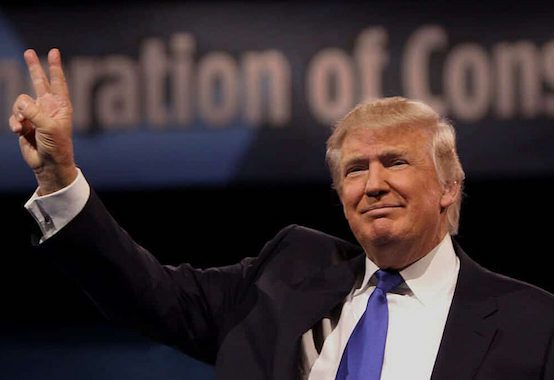Trump in a China Shop

My latest column at The Week is about Trump’s phone call with the President of Taiwan, and what it portends:
Responding to the dramatic rise of China is easily the most important foreign policy issue facing America. During the campaign, Trump’s China rhetoric focused on economic matters: charges that China was manipulating its currency and that American companies who relocated manufacturing to China were harming American workers. It was reasonable to expect that, once in office, Trump would seek to renegotiate the terms of our economic arrangement with China, whether bluntly by slapping tariffs on Chinese goods (which would likely be struck down by the WTO, and which would surely trigger Chinese retaliation regardless), or through some more sophisticated negotiating strategy. And if he pursued the latter course, there were indications that Trump had something to offer the Chinese in trade.
For example, Trump questioned the necessity of America’s troops being stationed in South Korea. I’ve argued before that coming to an understanding with the Chinese on the future status of a denuclearized peninsula would be a great place to start building a more cooperative relationship with China on geostrategic matters.
Similarly, the Obama administration’s Trans-Pacific Partnership was substantially about competing with China for the economic allegiance of many of the same countries. Having aggressively criticized the TPP, Trump may have been signaling to the Chinese that he was less interested in that kind of competition for influence than in securing the best deals for American companies and American workers.
It was possible for the Chinese to imagine that a Trump administration would take a firmer, more nationalist line on America’s economic interest, but would be less concerned in preventing China from pursuing its security objectives or expanding its influence in its region.
That interpretation is now somewhat less plausible, to say the least.
Last Friday, the president-elect received a congratulatory phone call from the Taiwanese president, the first contact at that level since America suspended formal diplomatic relations with the island in 1979. Contrary to initial reports, it now appears this was a planned contact arranged months in advance and aimed at letting the Chinese know that America was going to be more assertive going forward.
China’s response has so far been measured, though as Trump’s rhetoric has escalated, so has the Chinese rhetorical response. But the primary reason for that still-measured tone is that the Chinese still do not really know what the intentions of the new administration might be for bilateral relations. If China concludes that Trump is serious about deepening or possibly even normalizing relations with Taiwan, that would likely lead to a direct clash with Beijing, with potentially catastrophic consequences.
But it is also plausible that Trump is playing his pro-Taiwanese advisers like Stephen Yates for chumps, and using Taiwan merely as a bargaining chip in a high-stakes game of poker. Trump may be trying to create a crisis precisely in order to resolve it by trading away a harder line on Taiwan in exchange for concessions elsewhere — presumably on matters of trade. In that case, the biggest risk is that the Taiwanese — or any American allies in the region — take Trump’s promises to them seriously.
A Taiwanese declaration of independence, for example, would likely prompt a Chinese military response. Would America support Taiwan in that circumstance? It’s hard to imagine we would — but that doesn’t mean we wouldn’t suffer badly from the fallout. In 2008 the Georgian president launched a campaign to oust Russian troops from rebellious regions of his country, believing he had American backing. Instead, his country suffered a humiliating defeat, and Russian-American relations were poisoned for years to come. The consequences of abandoning Taiwan in comparable circumstances would be far more severe and wide ranging.
The great unknown, and the key to answering any question about the future of U.S.-China relations, is a true sense of how Trump understands the rise of China within the context of the current system of global security that he has been so critical of.
At TAC’s recent foreign policy conference, the primary point of contention among the panelists was over what our China policy should be. Jim Webb argued for a stepped up military deployment to deter and contain a newly assertive China. Andrew Bacevich argued that staying the course of maintaining our alliances was the best way to preserve stability in the western Pacific. And Christopher Layne argued that we are indeed in the middle of a power transition, and that we need to be more accommodating of China’s rise. China is the most important foreign policy question we face, and it is one that divides the TAC family. We need to talk about it more — especially but not only during campaign season.
One other thing to think about as we contemplate the President-elect’s actions: The Bush Administration also came into office also spoiling for a fight with China. 9-11 put any such plans on the back burner, but what we’re seeing now may be a resurgence of that kind of zero-sum primacist thinking. And it’s resurfacing in part because some of the same people are making many of the same arguments. Before the election, I argued that this kind of testicular Jacksonian conservatism was the real heart of Trumpism in foreign policy. It’s far too soon to draw any conclusions, but I do not relish the prospect of being proven right on this score.
Anyway, read the whole thing there.
Comments